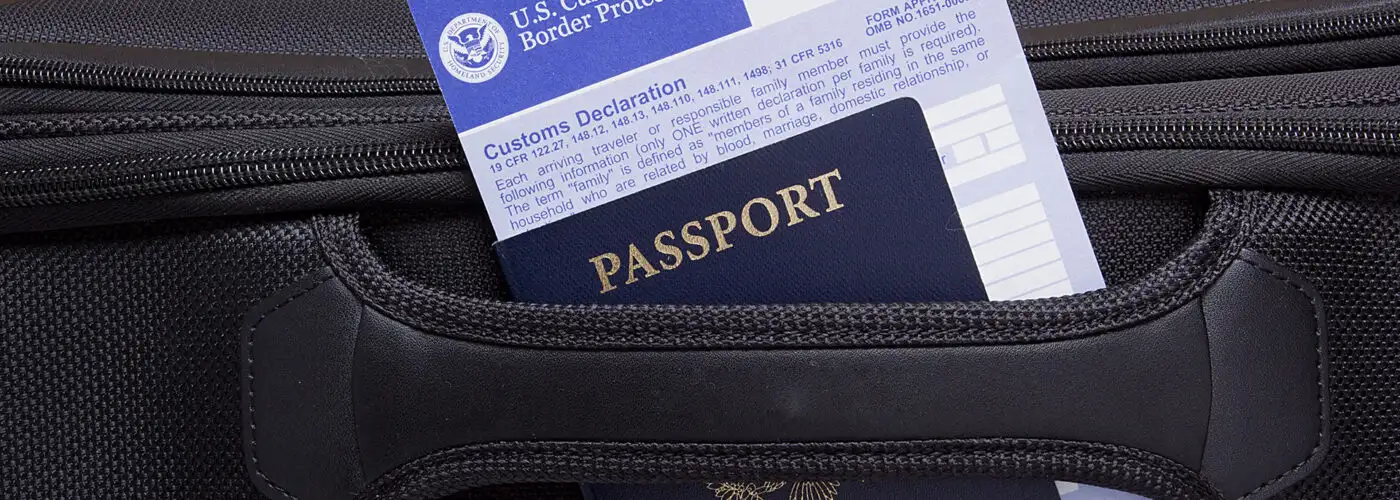You’ve been out of the country on a much-deserved vacation. About an hour before your plane lands, the flight attendant hands you a U.S. Customs declaration form. Chances are you purchased a few souvenirs or gifts during your travels—so which ones do you have to declare? The answer: Every item you didn’t have with you when you originally left the United States.
You’ll be asked how much you paid for each, including all taxes—so it helps to keep those receipts in an easily accessible place. You may also want to pack all of these items together so that you can find them quickly if you’re chosen for inspection.
You must declare all items you purchased and are carrying with you upon return to the United States, including gifts for other people as well as items you bought for yourself. This includes duty-free items purchased in foreign countries, as well as any merchandise you intend to sell or use in your business.
Contrary to popular belief, purchasing something in a duty-free shop does not necessarily mean you don’t have to pay any duties or taxes on it; the item is only duty-free in the country where you bought it. If the value of the item falls outside your personal exemption (see below), you will have to pay U.S. duties on it.
Register Your Items
To avoid confusion, you might want to register certain items with U.S. Customs before you leave the United States—that way you can prove that you owned an item before you left. This is particularly worth considering for expensive foreign-made items like laptops or watches. You can register the items at the nearest CBP office or at the international airport from which you are departing—just request a Certificate of Registration (CBP Form 4457) and have the items (including serial numbers) handy.
Duty-Free Exemptions
In most cases, travelers are permitted to bring up to $800 worth of merchandise back to the United States without having to pay duty. (Numerous exceptions apply.) Keep in mind that only one liter of alcohol, 200 cigarettes, and 100 cigars may be included in this exemption.
Family members who live in the same household and travel together generally may combine personal exemptions. Children and infants have the same exemptions as adults except for alcohol and tobacco products. If you bring back more than your exemption, you will have to pay duties.
Duty-Free and Reduced Rates
Items from certain countries may be duty-free under previously negotiated agreements with the United States government. Typically, items from Caribbean and Andean countries, certain sub-Saharan African countries, Israel, Jordan, Chile, Singapore, Canada, and Mexico are allowed into the United States at a duty-free or reduced rate. However, keep in mind these items still need to be declared when you re-enter the United States.
Also, household effects—such as furniture, paintings, carpets, linens, and similar items—are duty-free if you’ve used them for at least a year while living abroad, and they are not intended to be sold or used as gifts. For more information, see the CBP’s guide to duty-free or reduced rates.
Currency
You can take out or bring unlimited “monetary instruments,” as the U.S. Customs folks call cash, money orders, traveler’s checks, and the like, but if you are carrying more than $10,000 worth, you must file a Currency Reporting Form with U.S. Customs.
Prohibited and Restricted Items
Some items—such as absinthe, firearms, fruits, vegetables, plants, seeds, meat products, and some cultural artifacts—are restricted and will only be admitted into the U.S. under special circumstances. Others, including most drug paraphernalia and items from embargoed countries, are prohibited entirely. Check the CBP’s list of prohibited and restricted items before you leave.
Paying Duty at U.S. Customs
If you owe duty, it must be paid upon arrival in the United States. You may pay with U.S. currency, a personal check drawn on a U.S. bank, or a government check, money order, or traveler’s check (as long as the amount isn’t over $50 more than the duty you owe). Some locations also accept payment with Visa or Mastercard.
Mailing Items from Overseas
Your exemption applies only to those things you have on your person when you return to the United States; if you mail anything back, you’re responsible for paying the duties and taxes on those items separately. For more information, see the CBP’s information on sending items back to the U.S.
More from SmarterTravel:
- The Essential International Packing List
- The Best Way to Carry Money Overseas
- Traveling in a Developing Country: 11 Dos and Don’ts
Editor’s note: This story was originally published in 2017. It has been updated to reflect the most current information. Genevieve S. Brown and Sarah Schlichter contributed to this story.
We hand-pick everything we recommend and select items through testing and reviews. Some products are sent to us free of charge with no incentive to offer a favorable review. We offer our unbiased opinions and do not accept compensation to review products. All items are in stock and prices are accurate at the time of publication. If you buy something through our links, we may earn a commission.
Related
Top Fares From
Today's Top Travel Deals
Brought to you by ShermansTravel
Shop and Save with Country Inns...
Patricia Magaña
 Hotel & Lodging Deals
Hotel & Lodging Deals
$229 -- Chicago: Discounted Rates and...
Francesca Miele
 Hotel & Lodging Deals
$229+
Hotel & Lodging Deals
$229+
$188 -- Honolulu: Save on Oceanview...
Abigail Lamay
 Hotel & Lodging Deals
$188+
Hotel & Lodging Deals
$188+




